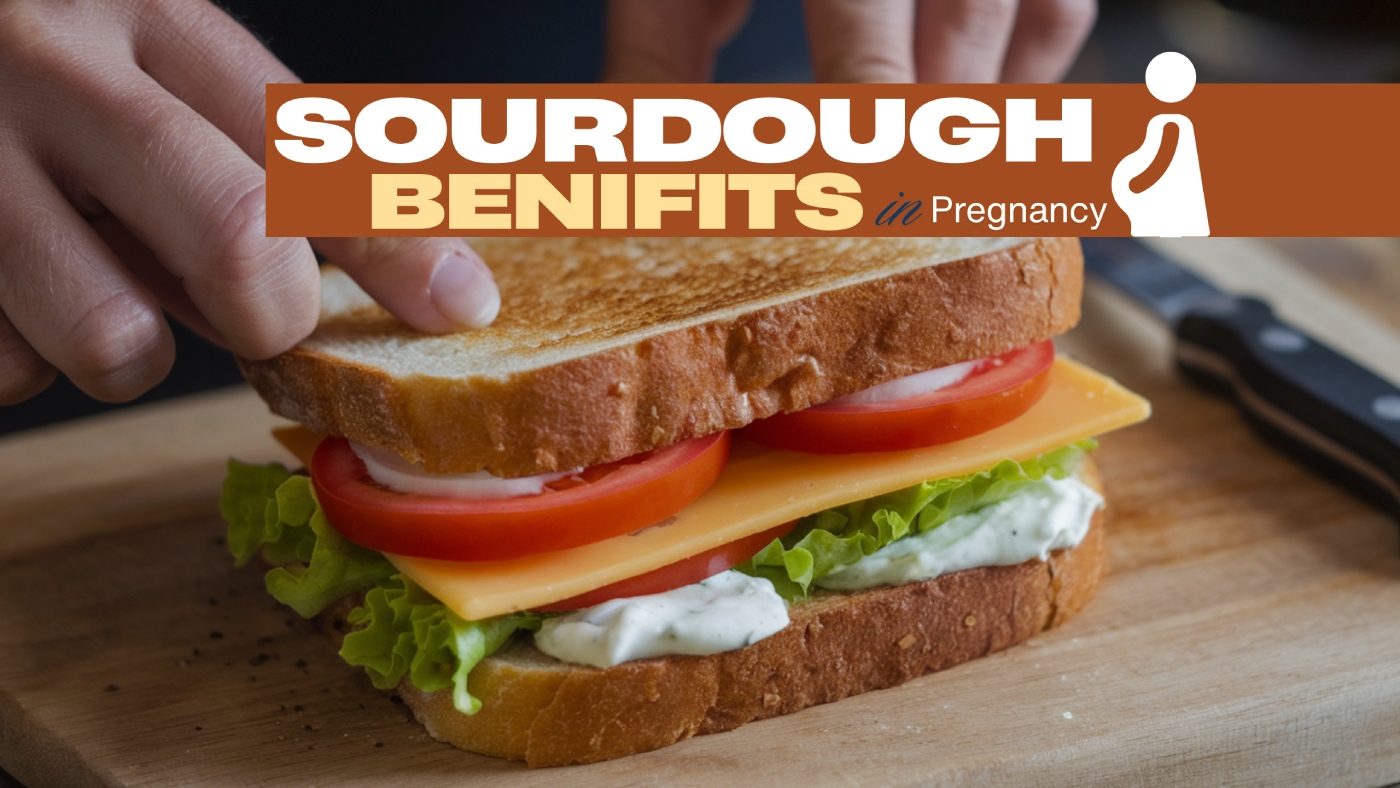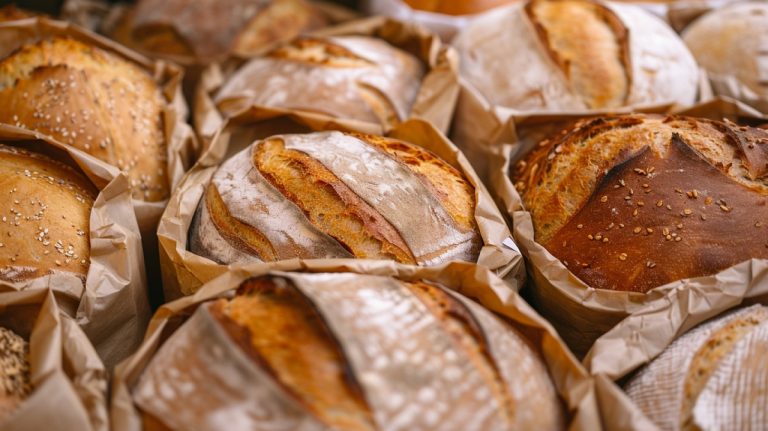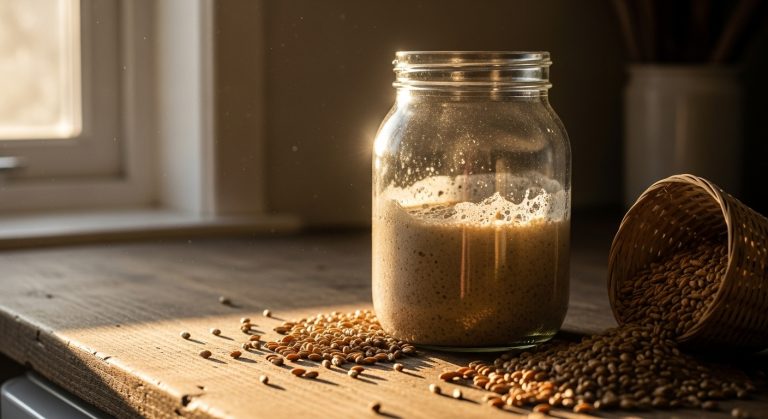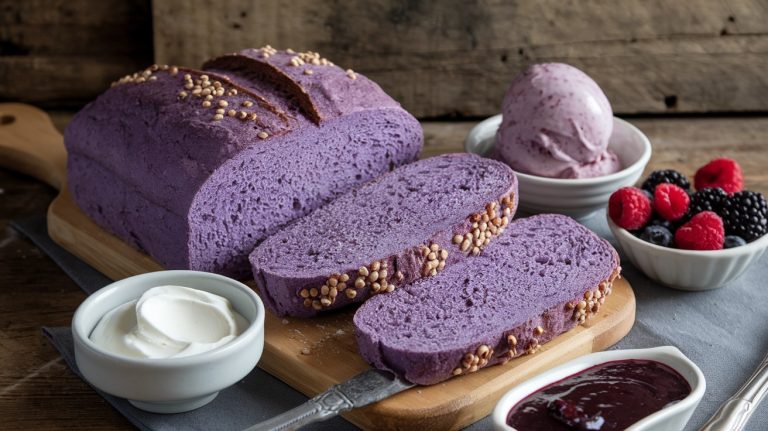Can You Eat Sourdough While Pregnant: Bread, Baby and Balance
Yes, you can enjoy sourdough while pregnant! It offers benefits like improved digestion and lower blood sugar spikes, especially when you choose whole-grain varieties.
Opt for traditional sourdough from reputable sources to maximize nutrient absorption and avoid harmful additives. The fermentation process makes it easier to digest, supporting a healthy gut.
Just be mindful of your carbohydrate intake if you’re managing gestational diabetes. There’s a lot more to reflect on about sourdough’s advantages and safety during pregnancy.
Key Takeaways
- Sourdough is safe to eat during pregnancy when properly cooked and sourced from reputable bakeries to minimize harmful bacteria risks.
- The fermentation process in sourdough enhances nutrient absorption, making it a nutritious option rich in essential vitamins and minerals.
- Sourdough’s lower glycemic index helps regulate blood sugar levels, making it suitable for pregnant women managing gestational diabetes.
- Whole-grain sourdough varieties provide additional fiber and nutrients, supporting digestive health and alleviating common pregnancy-related digestive issues.
- Always avoid sourdough with added sugars or excessive salt for optimal health benefits during pregnancy.
Safety and Precautions of Sourdough Consumption During Pregnancy
When it comes to enjoying sourdough during pregnancy, safety is paramount. Sourdough bread is generally safe if it’s properly cooked, as raw sourdough may harbor harmful bacteria like Salmonella or E. coli. Additionally, the fermentation process enhances the nutritional value of the bread, providing benefits that are important during pregnancy.
Safety is crucial when enjoying sourdough during pregnancy; ensure it’s properly cooked to avoid harmful bacteria.
Make certain to choose bread from reputable sources to minimize risks. If you have gestational diabetes, monitor your carbohydrate intake, as sourdough has a lower glycemic index than regular bread but still requires careful management. Additionally, opt for whole-grain varieties to maximize fiber and nutrient content. Whole grain sourdough can provide essential vitamins and minerals that are important for both maternal and fetal health, so it’s worth considering.
Avoid sourdough with added sugars or excessive salt. Always consult your healthcare provider for personalized dietary advice to guarantee you make safe choices for yourself and your baby.
Nutritional Benefits of Sourdough Bread
Sourdough bread not only satisfies your cravings but also offers a variety of nutritional benefits that can be particularly advantageous during pregnancy.
Each slice contains about 185-188 calories, providing essential macronutrients, including carbohydrates and protein, along with minimal fat and sugar. The fermentation process in sourdough helps to enhance nutrient absorption, making vitamins and minerals more bioavailable.
Rich in important minerals like iron and magnesium, sourdough also delivers significant vitamins such as folate, which are essential for fetal development. Its lower glycemic index helps regulate blood sugar levels, supporting a stable energy supply. Additionally, the fermentation process enhances nutrient absorption, making vitamins and minerals more bioavailable.
Incorporating sourdough into your diet can help guarantee you and your baby receive important nutrients for peak health throughout your pregnancy. Moreover, the presence of lactic acid bacteria in sourdough contributes to improved digestive health, which can be beneficial during pregnancy.
Digestive Advantages of Sourdough for Pregnant Women
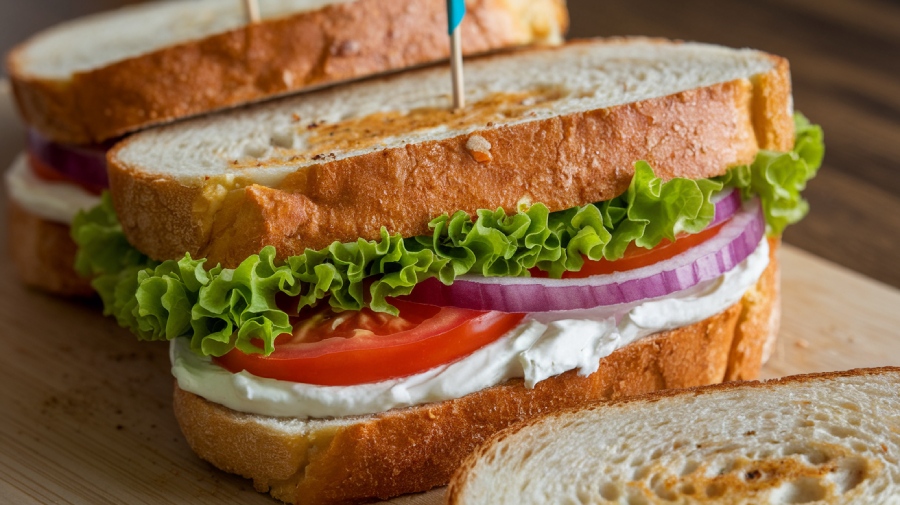
Pregnancy often comes with a range of digestive challenges, but incorporating sourdough bread into your diet can provide notable relief. Its fermentation process makes it easier to digest and supports gut health, which is vital during this time.
Here are some digestive advantages of sourdough:
- Easier Digestion: Fermentation breaks down complex carbohydrates and gluten, making it more suitable for those with sensitivities.
- Probiotic Power: Supports a healthy gut microbiome, promoting beneficial bacteria that can enhance overall digestive health.
- Reduced Symptoms: Alleviates common issues like constipation and bloating. Additionally, whole grain bread is rich in iron and folic acid, which are crucial for pregnancy health.
- Enhanced Nutrient Absorption: Increases the bioavailability of essential minerals like iron and magnesium, which are vital for blood sugar regulation during pregnancy.
Managing Gestational Diabetes With Sourdough
If you’re managing gestational diabetes, incorporating sourdough into your diet can be a smart choice.
The fermentation process in sourdough breaks down starches into simpler sugars, resulting in lower blood sugar spikes. With a lower glycemic index, sourdough causes a more gradual increase in blood sugar levels, which can reduce insulin response.
The fermentation in sourdough lowers blood sugar spikes, promoting a gradual rise and reduced insulin response.
Its higher resistant starch and fiber content also aids in regulating blood sugar by slowing digestion. Pairing sourdough with protein or healthy fats can enhance these benefits. However, remember to monitor your blood glucose levels, as individual responses may vary.
Choosing the Right Sourdough Bread
When choosing the right sourdough bread, it’s important to take into account both nutritional value and ingredients.
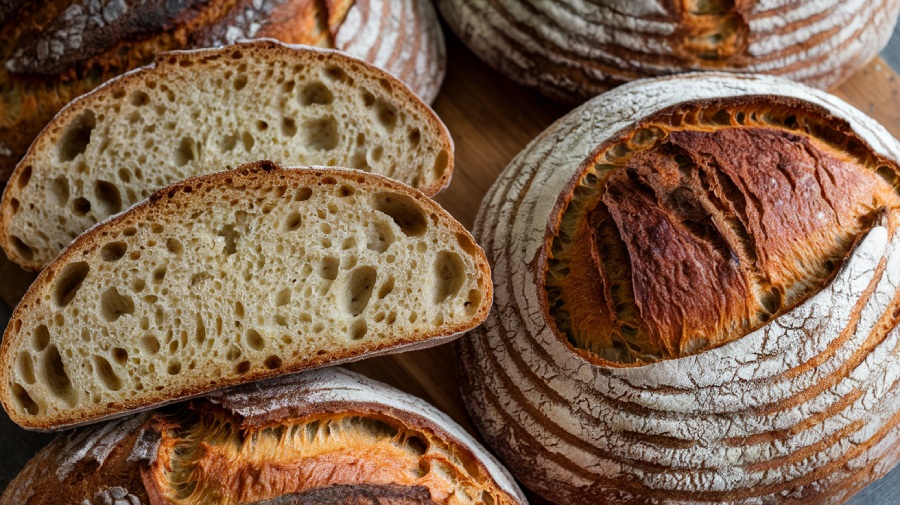
Look for options that provide essential nutrients beneficial for you during pregnancy. Here’s what to evaluate:
- Whole Grains: Choose whole wheat, rye, or spelt for added fiber and nutrients.
- Organic Options: Opt for organic sourdough to minimize exposure to pesticides.
- Fermentation: Select traditional sourdough, as its longer fermentation makes it easier to digest and enhances probiotic benefits. Sourdough bread is known for being more digestible and healthier compared to commercial loaves.
- Additives: Avoid bread with additives like sugar or commercial yeast; real sourdough should have minimal ingredients.
Sourdough Compared to Other Types of Bread
Understanding the differences between sourdough and other types of bread can help you make informed choices during pregnancy.
Sourdough is rich in B vitamins, iron, and folate, all crucial for fetal development. It also contains more fiber than white bread, aiding digestion, while its lower glycemic index helps manage blood sugar levels. The fermentation process enhances nutrient availability and creates probiotics that support gut health. Additionally, sourdough provides essential calcium that is important for both mother and baby’s development, and its fermentation process also contributes to improved nutrient absorption.
In contrast, white bread lacks essential nutrients and can worsen constipation. While whole wheat bread is healthier than white, sourdough’s fermentation offers superior digestibility and additional gut health benefits.
Frequently Asked Questions
Can Sourdough Bread Cause Allergies During Pregnancy?
Sourdough bread itself isn’t linked to causing allergies during pregnancy. Research doesn’t show a direct connection between sourdough and allergy development.
However, you should consider your overall diet, as high consumption of certain types of bread may influence allergy risks. Whole-grain options like sourdough are generally healthier and provide essential nutrients.
It’s always best to consult your healthcare provider for personalized dietary advice during this important time.
How Often Can I Eat Sourdough While Pregnant?
Imagine savoring a warm slice of sourdough, its tangy aroma filling the air.
You can enjoy sourdough several times a week, ideally as part of a balanced diet. Aim for 6 to 11 servings of grains daily, with sourdough being a nutritious choice.
Moderation is important, especially if you’re managing blood sugar levels. Always opt for whole-grain varieties, as they pack more nutrients and fiber, benefiting both you and your baby.
Is Homemade Sourdough Safe for Pregnant Women?
Homemade sourdough can be safe for you during pregnancy if prepared properly. Confirm it’s fully cooked to eliminate bacterial risks and avoid raw dough to prevent contamination.
The fermentation process enhances nutrient absorption and gut health, making it beneficial. Just remember to maintain good hygiene when handling raw dough, and consult your healthcare provider for personalized advice.
Incorporating whole grain options can also boost its nutritional value. Enjoy it as part of a balanced diet!
Can I Eat Sourdough if I Have Gluten Sensitivity?
Think of sourdough as a friendly bridge for your stomach. If you have mild gluten sensitivity, you might find sourdough easier to digest.
Its fermentation process breaks down some gluten, making it more tolerable for many. However, it’s not gluten-free, so if you have celiac disease, steer clear.
Always listen to your body, as individual reactions vary. Consider trying gluten-free sourdough options if you need to avoid gluten entirely.
What Toppings Are Safe on Sourdough During Pregnancy?
When topping your sourdough during pregnancy, stick to safe options.
Avocado offers healthy fats, while scrambled eggs provide essential protein. You can also use pasteurized butter in moderation, and add fresh vegetables like tomatoes or cucumbers for extra nutrients.
Hummus is another great choice, packed with fiber and protein.
These toppings not only enhance flavor but also deliver crucial nutrients that support your health and your baby’s development.
Sourdough: A Nourishing Choice for Moms-to-Be
In conclusion, savoring sourdough during pregnancy can be a safe and smart choice. This scrumptious staple boasts beneficial bacteria and balanced nutrients that support your health and digestion.
While managing gestational diabetes, opt for whole grain varieties to maximize those marvelous minerals. So, as you navigate your nutritional needs, remember: a little mindful munching on sourdough can satisfy cravings and contribute to a healthier pregnancy.
Always consult your healthcare provider for personalized guidance.

